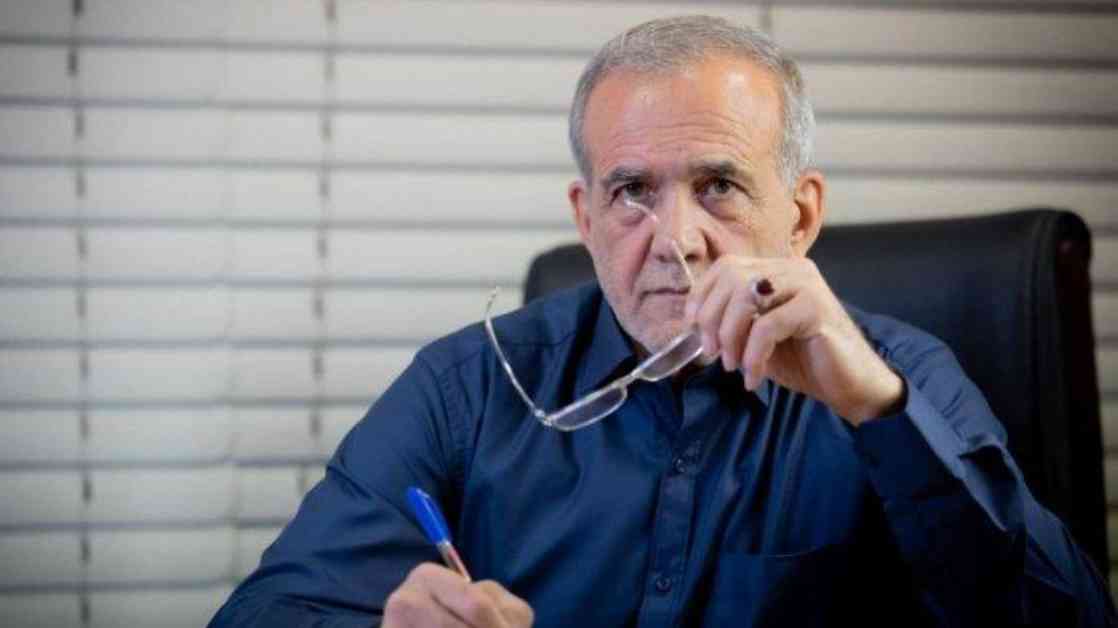Iran President Warns Trump to Prioritize Peace Over Conflict
In a recent interview, Iranian President Masoud Pezeshkian issued a stern warning to the newly-elected President of the United States, Donald Trump, urging him to avoid actions that could potentially lead to a war with Iran. Pezeshkian emphasized that Iran has no intentions of developing nuclear weapons and expressed hope that Trump would prioritize peace rather than confrontation, which could escalate into a conflict.
Escalating Tensions and Threats
The tension between the two countries has been steadily rising, particularly after Trump’s recent campaign threats. During his presidential campaign, Trump warned that Israel, a key ally of the US, might launch attacks on Iran’s nuclear facilities. This threat was further fueled by Israeli Defense Minister Israel Katz’s statement in November 2024, where he warned Iran that their nuclear sites were more vulnerable than ever to potential military strikes from Israel.
Iran’s Firm Response
In response to these threats, President Pezeshkian issued a clear and firm statement, asserting that Iran would react to any actions taken against them. While emphasizing that Iran is not afraid of war, Pezeshkian reiterated that they do not seek it. Iran has consistently denied allegations from Israel and the US regarding their nuclear ambitions, maintaining that their nuclear program is solely aimed at peaceful purposes such as energy development.
History of Tensions
The strained relationship between Iran and the US dates back to 2018 when Donald Trump’s administration withdrew from the 2015 nuclear agreement that imposed restrictions on Iran’s nuclear activities. This move by the US further exacerbated the existing tensions between the two nations.
As the world watches these developments unfold, the importance of diplomacy and dialogue to prevent a potential conflict cannot be overstated. The implications of a military confrontation between these two countries would have far-reaching consequences for the region and the international community as a whole. It is crucial for both sides to prioritize peaceful resolutions and engage in constructive dialogue to avoid any escalation that could lead to devastating outcomes.
In times of heightened tensions and threats of conflict, the need for open communication, mutual understanding, and respect for each other’s sovereignty becomes paramount. The path to peace may be challenging, but the stakes are too high to ignore. As the world waits to see how these events will unfold, the hope for a peaceful resolution remains a shared goal for all those invested in global stability and security.






















